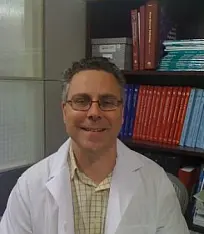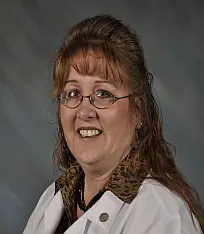After this review, participants should be able to:
• Use the evidence-based information and practice tools presented to formulate differential diagnoses for most clinical scenarios better
• Effectively apply current practice guidelines published by CAP, ASCP, and other major medical and governmental agencies
• Recognize common patterns of test results and recommend additional tests, as needed, to characterize the etiology and prognosis of individual patient conditions
• Identify indications and contraindications for transfusion and problems that might arise to advise better-attending physicians
• Apply strategies for integrating molecular and genetic testing into routine clinical practice
• Describe the basic technique and pitfall avoidance of fine-needle aspiration biopsy performance
• Apply increased knowledge of pathology to achieve specialty board certifications
Faculty and Topics
 Anwar S. Raza MD
Anwar S. Raza MD
Breast
Endocrine
 Carolyn Jones, MD, PhD
Carolyn Jones, MD, PhD
Molecular
 Stephanie Powers, MD
Stephanie Powers, MD
Forensic
 Aaron Auerbach MD
Aaron Auerbach MD
Lymph Node
White Blood Cells
Red Blood Cells
 John Schmieg III, MD, Ph.D.
John Schmieg III, MD, Ph.D.
Platelets and Coagulation
 Madina Sukhanova Ph.D., FACMG
Madina Sukhanova Ph.D., FACMG
Cytogenetics
 Thomas S. Alexander Ph.D
Thomas S. Alexander Ph.D
Humoral and Cellular Immunity
Immunodeficiency and Autoimmunity
Flow Cytometry
 Richard R. Gammon, MD
Richard R. Gammon, MD
Blood Banking
 D. Robert Dufour MD
D. Robert Dufour MD
Laboratory Management
Instrumentation and Measurements
Endocrinology
Enzymes and Liver
Acid-Base, Electrolytes, and Tumor Markers,
 Margie Morgan, PhD
Margie Morgan, PhD
Virology
Mycobacteriology
Mycology
 Yvette S McCarter Ph.D.
Yvette S McCarter Ph.D.
Bacteriology
Antibiotic Sensitivity Testing
Parasitology
 William E. Winter MD
William E. Winter MD
Statistics and Quality Controls
Immunoassay, Toxicology, and TDM
Diabetes and Renal Function
Lipids and Protein


 Anwar S. Raza MD
Anwar S. Raza MD Carolyn Jones, MD, PhD
Carolyn Jones, MD, PhD Stephanie Powers, MD
Stephanie Powers, MD Aaron Auerbach MD
Aaron Auerbach MD John Schmieg III, MD, Ph.D.
John Schmieg III, MD, Ph.D. Madina Sukhanova Ph.D., FACMG
Madina Sukhanova Ph.D., FACMG Thomas S. Alexander Ph.D
Thomas S. Alexander Ph.D Richard R. Gammon, MD
Richard R. Gammon, MD D. Robert Dufour MD
D. Robert Dufour MD Margie Morgan, PhD
Margie Morgan, PhD Yvette S McCarter Ph.D.
Yvette S McCarter Ph.D. William E. Winter MD
William E. Winter MD